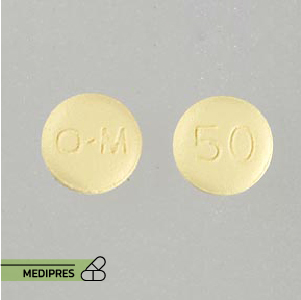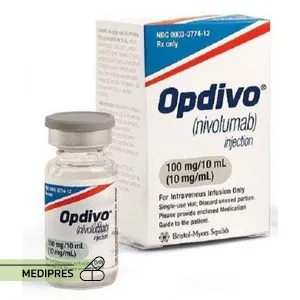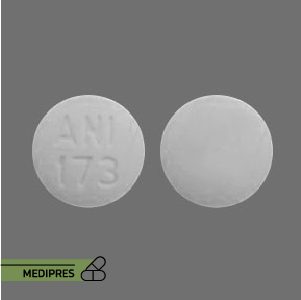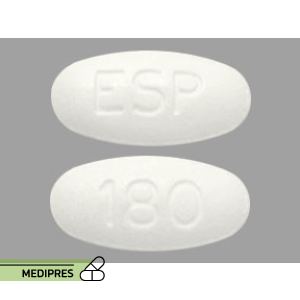
NP Thyroid
23 June, 2023
Nystatin
23 June, 2023Nucynta
Generic name: Tapentadol
Drug class: Opioids
Dosage forms: Tablet
Root of administration: Oral
Dose: 50, 75, 100 mg
Mechanism of action: Nucynta is an opioid pain medication. An opioid is sometimes called a narcotic.
Drug usage cases: Nucynta is a prescription medicine that is used to treat moderate to severe pain.
Nucynta ER (extended-release) is for around-the-clock treatment of pain that is not controlled by other medicines. Nucynta ER is not for use on an as-needed basis for pain.
Drug contra indications: You should not use Nucynta if you are allergic to tapentadol, or if you have:
severe asthma or breathing problems; a stomach or bowel obstruction (including paralytic ileus); or if you have taken an MAO inhibitor in the past 14 days, such as isocarboxazid, linezolid, methylene blue injection, phenelzine, or tranylcypromine. To make sure Nucynta is safe for you, tell your doctor if you have ever had:
breathing problems, sleep apnea (breathing that stops during sleep); a head injury, brain tumor, or seizures; alcoholism or drug addiction, mental illness; urination problems, liver or kidney disease; or problems with your gallbladder, pancreas, thyroid, or adrenal gland. Do not give Nucynta to a child.
side effects: Get emergency medical help if you have signs of an allergic reaction to Nucynta: hives; chest pain, fast heartbeats, difficult breathing; swelling of your face, lips, tongue, or throat.
Opioid medicine can slow or stop your breathing, and death may occur. A person caring for you should give naloxone and/or seek emergency medical attention if you have slow breathing with long pauses, blue colored lips, or if you are hard to wake up. Call your doctor at once if you have:
noisy breathing, sighing, shallow breathing, breathing that stops; a light-headed feeling, like you might pass out; agitation, feeling hot; severe drowsiness or dizziness, confusion, problems with speech or balance; a seizure; serotonin syndrome – agitation, hallucinations, fever, fast heart rate, muscle stiffness, twitching, loss of coordination, nausea, diarrhea; or low cortisol levels – nausea, vomiting, loss of appetite, dizziness, worsening tiredness or weakness. Serious breathing problems may be more likely in older adults and in those who are debilitated or have wasting syndrome or chronic breathing disorders.
Warnings: Do not use Nucynta if you have used a MAO inhibitor in the past 14 days. A dangerous drug interaction could occur. MAO inhibitors include isocarboxazid, linezolid, methylene blue injection, phenelzine, tranylcypromine, and others. You should not use Nucynta if you have severe breathing problems, or a bowel obstruction called paralytic ileus. Nucynta can slow or stop your breathing, especially when you start using this medicine or whenever your dose is changed. Never take Nucynta in larger amounts, or for longer than prescribed. Do not crush, break, or open an extended-release tablet. Swallow it whole to avoid exposure to a potentially fatal dose. Tapentadol may be habit-forming, even at regular doses. Take Nucynta exactly as prescribed by your doctor. Never share the medicine with another person. MISUSE OF NARCOTIC PAIN MEDICATION CAN CAUSE ADDICTION, OVERDOSE, OR DEATH, especially in a child or other person using the medicine without a prescription. Keep the medication in a place where others cannot get to it. Fatal side effects can occur if you use Nucynta with alcohol, or with other drugs that cause drowsiness or slow your breathing.
Use during pregnancy or breastfeeding: If you use opioid medicine while you are pregnant, your baby could become dependent tapentadol. This can cause life-threatening withdrawal symptoms in the baby after it is born. Babies born dependent on habit-forming medicine may need medical treatment for several weeks. Ask a doctor before using Nucynta if you are breastfeeding. Tell your



